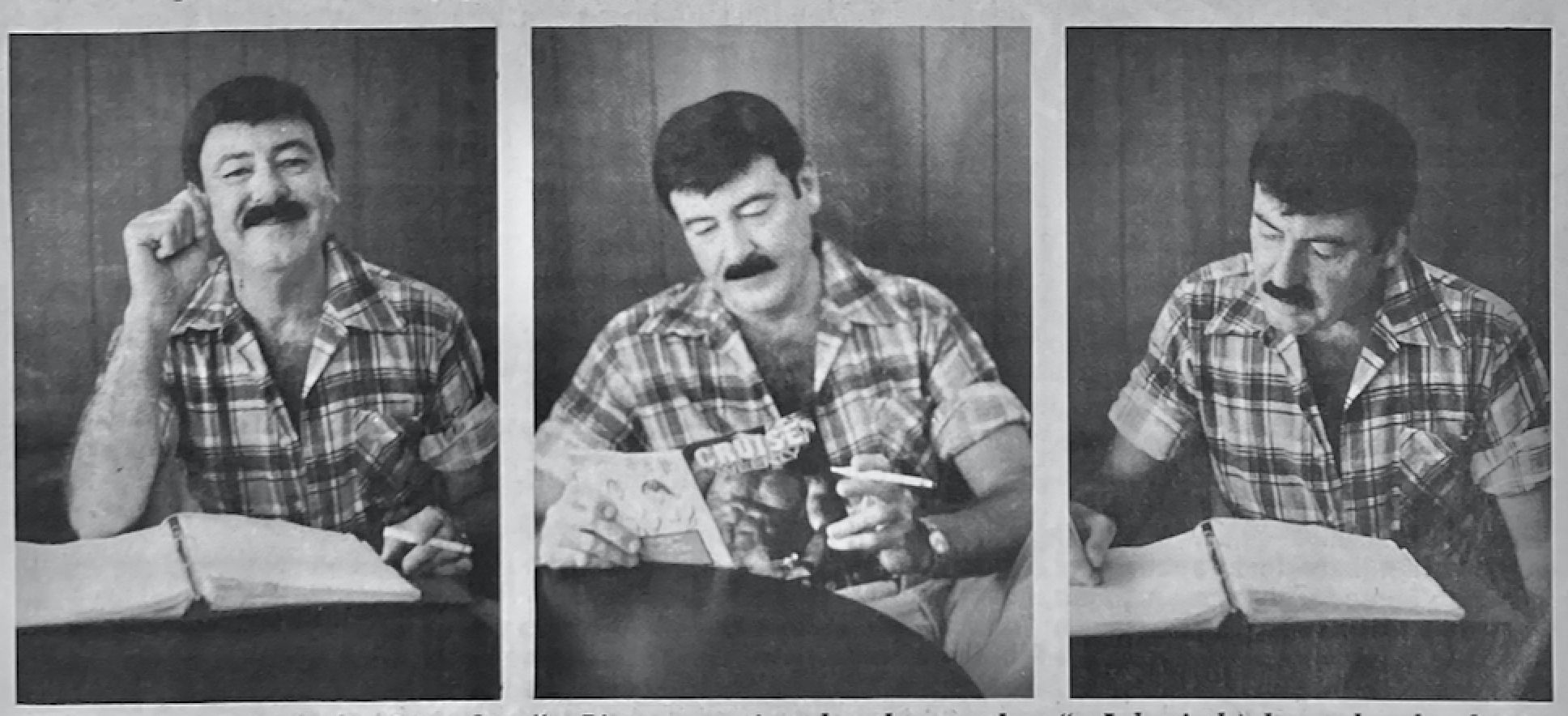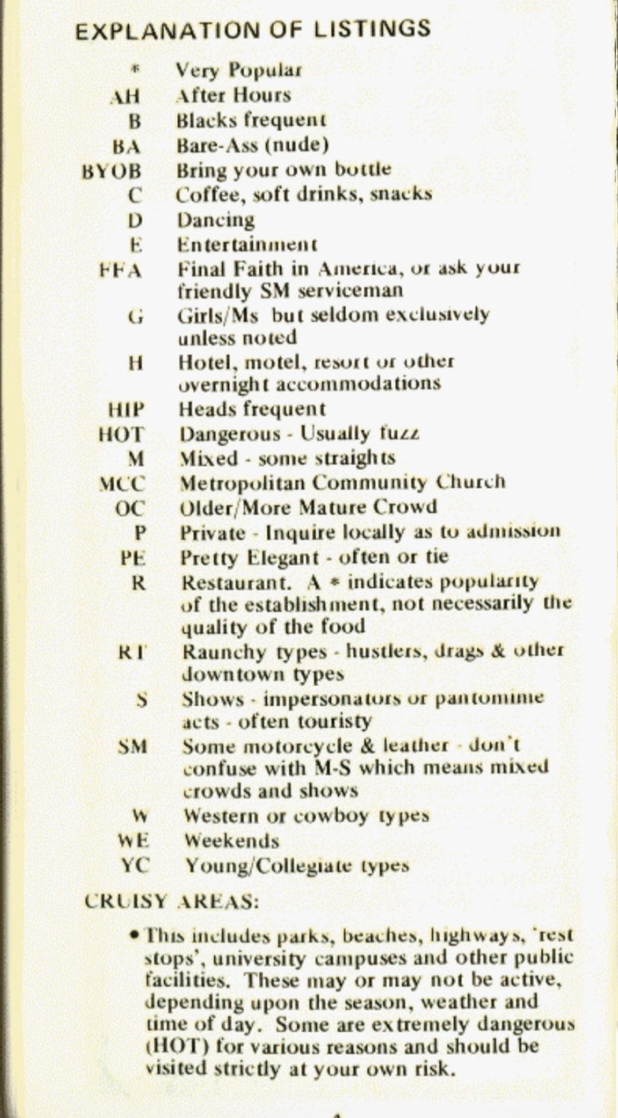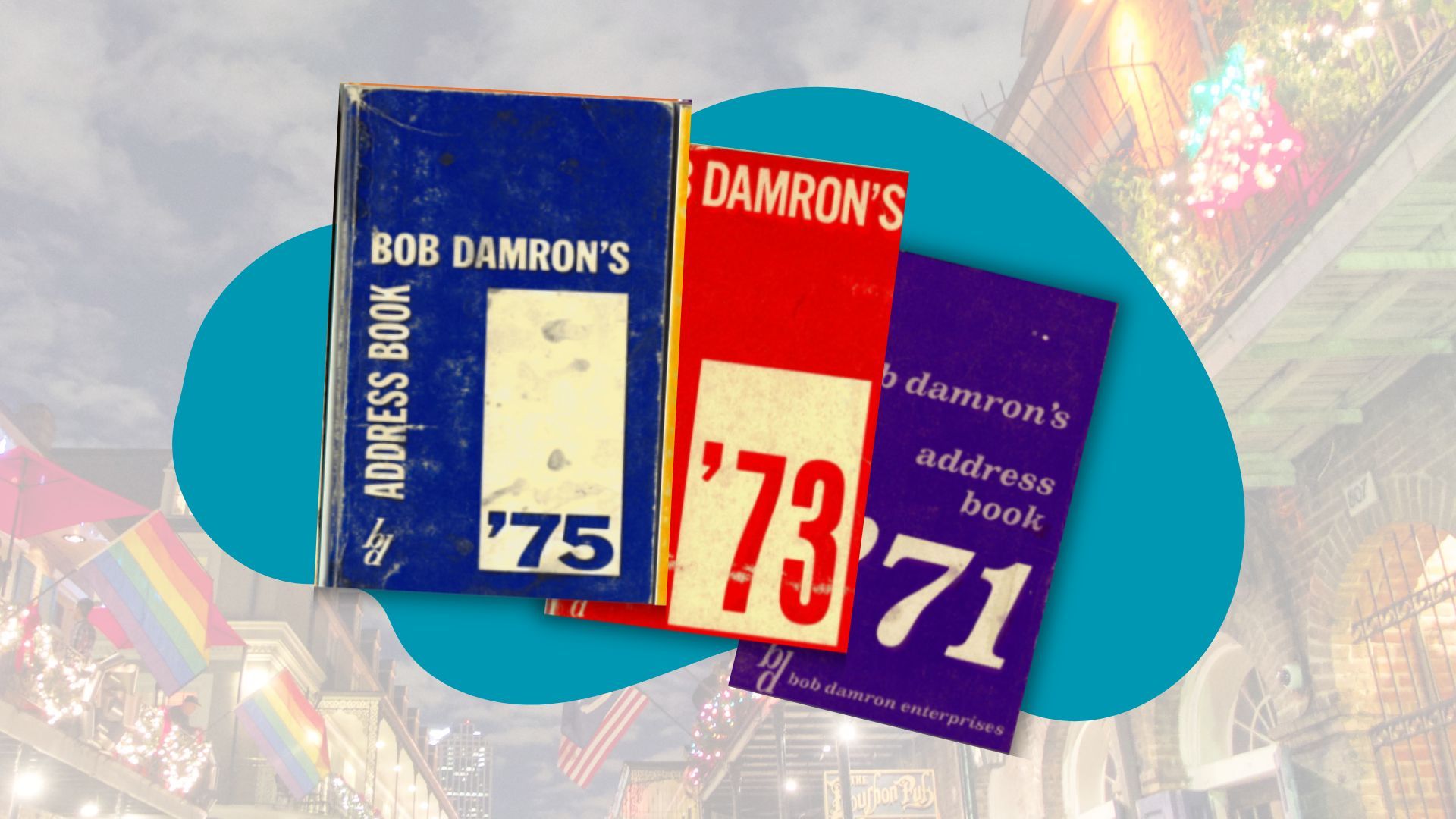Before smartphones and Sniffies existed, there was one bite-sized booklet that helped LGBTQ+ travelers navigate the world.
Bob Damron's address book, first published in 1964, was a pocket-sized compendium of gay-friendly businesses across the United States and beyond. For decades, it served as an indispensable tool for queer communities as Damron took the role of geographer and documented his constant travels and observations. Its first year, there were 3,000 copies printed; by 1987, over 100,000 copies were in circulation annually.
As Judas Priest frontman Rob Halford would later admit in his 2020 memoir, Damron’s gay guides were a compass to finding all the gay bars and queer people in other parts of the world, not just queer havens like San Francisco, and the annual men’s travel guide eventually became a critical piece of queer history.
Damron himself passed away of complications from AIDS in 1989. A recent digital project, Mapping the Gay Guides, documented the years of recommendations in an online searchable database. Here, we revisit how the Damron guides pioneered gay travel.
Who Was Bob Damron?
Bob Damron, a former Broadway actor and entrepreneur, recognized the need for a travel guide catering specifically to gay men. He began compiling information about bars, restaurants, hotels, and other businesses that welcomed LGBTQ+ patrons. What began as a mimeographed list of 50 entries quickly grew into a comprehensive guide covering hundreds of cities worldwide.

Damron's address book became an essential resource for gay travelers in an era when homosexuality was still criminalized in many states. It provided not only practical information but also a sense of community and belonging. By highlighting safe spaces where queer individuals could socialize and express themselves freely, the guide helped foster connections and solidarity within the LGBTQ+ community.
From Gay Bars to Covering All Your Destinations
As society's attitudes towards the LGBTQ+ community evolved, so did Bob Damron's Address Book. In the 1970s and 1980s, the guide expanded to include more diverse listings, such as bookstores, community centers, and political organizations. It also began featuring advertisements from gay-owned businesses, providing a platform for LGBTQ+ entrepreneurs to reach their target market.

The Legacy of Bob Damron's Address Book
Although the rise of the internet and digital technologies has largely overtaken the need for printed travel guides, Bob Damron's address book remains an important part of LGBTQ+ history. The majority of locations listed in the guides are long gone, with few or no records, so the address books and gay travel guides are all we have for documenting this piece of queer history. These historical documents serve as a testament to the resilience, creativity and entrepreneurial spirit of the queer community in the face of adversity. Damron's work paved the way for subsequent generations of LGBTQ+ business owners and innovators.
Bob Damron's Address Book may have started as a simple list of gay-friendly establishments, but it grew into a powerful symbol of resilience, community, and entrepreneurial spirit. As we navigate the challenges and opportunities of the modern business landscape, let us remember the trailblazers like Bob Damron who paved the way for greater equality and representation. ◆
Thanks For Reading 🙏🏼
Keep up the momentum with one or more of these next steps:
💬 Leave a comment below. Let me know a takeaway or thought you had from this post.
📣 Share this post with your network or a friend. Sharing helps spread the word, and posts are formatted to be both easy to read and easy to curate, with nice image previews. You'll look savvy and informed.
📲 Connect on another platform. I’m currently publishing in these places. If you are too, say hello:
- Medium: Articles and thought essays.
- Threads: Casual, Twitter-esque commentary.
- Instagram: Media appearances, and some occasional IRL posts to Stories.
- TikTok: Occasional video scraps from reporting and life.
- LinkedIn: Buttoned-up posts.
📬 Sign up for my free email list. Financialicious is a free newsletter about online entrepreneurship and finance from the perspective of a gay male editor. Learn more and browse past editions here.
🏕 Up your writing game. Camp Wordsmith® is a content marketing strategy program for small business owners, service providers, and online professionals. Learn more here.
📊 Hire me for consulting. I provide 1-on-1 consultations through my company, Hefty Media Group. We're a certified diversity supplier with the National Gay & Lesbian Chamber of Commerce. Learn more here.


